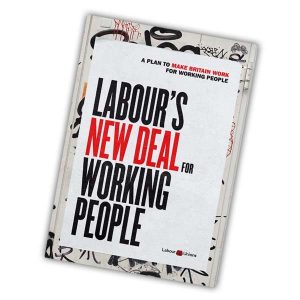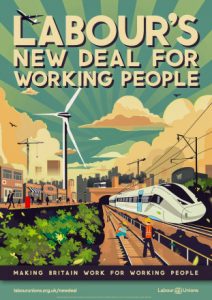 The Government’s announcement that Chancellor Rachel Reeves would announce five new Freeports in the budget was a “communications cock up” Downing Street now says.
The Government’s announcement that Chancellor Rachel Reeves would announce five new Freeports in the budget was a “communications cock up” Downing Street now says.
On October 25th Starmer (in Samoa for the Commonwealth Heads of Government Summit with the King) and his aides announced the move as part of its effort to drive economic growth.
The Government said it would set out plans to establish more low tax zones plus an ‘investment zone’ in the East Midlands where businesses will benefit from tax breaks such as lower tariffs and customs creating thousands of new jobs and ‘turbo charging’ the economy.
Between 1984 and 2012 existing Freeport’s made little impact on the economy. Unions warned they would suck many companies in to the low tax, union free zones creating low paid precarious jobs and stable jobs would be lost at established businesses.
They were eventually phased out by David Cameron’s government only for Rishi Sunak to re-establish them as chancellor as a way of shoring up trade following the Brexit disaster.
From 2021, eight new Freeports opened in England with two each in Scotland and Wales with little success and minimal interest from business and industry.
Starmer’s announcement said Freeports “would have this government’s stamp on them” despite their failure. He said existing Freeports were “working well” but Labour would make them work better.
The announcement received a frosty reception from business and unions. Unions dusted off their briefings on Freeport’s and with the TUCs comprehensive analysis published in 2020 (region by region) handily still on their website copies soon found their way on to the phones of supportive trade union MPs.
A government official blamed the time difference: “the whole thing was snarled up by the fact that Starmer and his aides (who’d trailed the news) were 13 hours ahead in Samoa” and said it “comms cock up,”
Government officials now say Rachel Reeves will merely be giving the go-ahead to new customs posts at five of the existing Freeports. They say they are still baffled as to how Downing Street managed to make the announcement of customs posts into five entirely new Freeports – with the ringing endorsement of the PM.
It may be somebody pointed out that OBR said in 2021 “that tax breaks in England’s Freeports would cost the government £50m a year and that their impact on GDP was likely to be so small it would be “difficult to discern even in retrospect” – as well as union anger on the question of workers rights and union recognition despite the PMs spokesperson saying (almost as an after thought) that “where necessary the government will make improvements to the Freeport programme” and that the Employment Rights Bill would help safeguard workers’ rights.
Despite recent changes this latest “mis-communication” only creates an air of distrust and reinforces the view that Downing Street’s communications and media operation is a shambolic, and the gung-ho approach by officials and Labour staffers (using Johnsonian ‘boosterism’ language) trying to smuggle policies through thinking we won’t notice does not work.


